Obamacare & Addiction Treatment: Has the ACA Lived Up to Expectations?
In 2013, one of the nation’s leading experts on drug addiction and treatment predicted that the Affordable Care Act (ACA, also known as “Obamacare) will have a revolutionary impact on addiction treatment in the United States.
The ACA “will have more far-reaching positive consequences for substance abuse treatment than anything in my lifetime, including the discovery of methadone,” A. Thomas McClellan, a former Deputy Director of the White House Office of National Drug Control Policy, said at a February 2013 meeting of the New York Society of Addiction Medicine.
Seven months later, McClellan, who is also a member of the CRC Health Group Clinical Advisory Board, reiterated his stance. “I don’t think there’s another illness that will be more affected by the Affordable Care Act,” he said in a Sept. 2013 interview with California Health Report.
As the ACA has moved from theory to practice, though, has the reality of expanded coverage equaled the expectations that McClellan and others have expressed in recent years?
‘An Absolute Game Changer’
McClellan’s assessment is consistent with information posted on the ONDCP website:
The ACA includes substance use disorders as one of the ten elements of essential health benefits. This means that all health insurance sold on Health Insurance Exchanges or provided by Medicaid to certain newly eligible adults starting in 2014 must include services for substance use disorders.
By including these benefits in health insurance packages, more health care providers can offer and be reimbursed for these services, resulting in more individuals having access to treatment.
The specific substance abuse services that will be covered are currently being determined by the Department of Health and Human Services, and will take into account evidence on what services allow individuals to get the treatment they need and help them with recovery.
And McClellan isn’t the only expert who sees how the new health care law could benefit the millions of Americans who need but aren’t receiving care for drug addiction or a related condition.
The Partnership for Drug-Free Kids predicts a significant expansion in covered treatment services by the end of the year:
By the end of 2014, under the ACA, coverage of substance use disorders is likely to be comparable to that of other chronic illnesses, such as hypertension, asthma and diabetes.
Government insurers (Medicare and Medicaid) will cover physician visits (including screening, brief intervention, assessment, evaluation and medication), clinic visits, home health visits, family counseling, alcohol and drug testing, four maintenance and anti-craving medications, monitoring tests and smoking cessation.
Christie Donner, executive director of the Colorado Criminal Justice Reform Coalition, believes that the ACA will have a dramatic positive impact on how addiction is treated in the United States.
“I think that the ACA is an absolute game changer,” Donner said. “And I’m extremely excited about the potential of it.”
Equal Coverage Under the Law
In addition to the “new” features it provides for, the ACA will also impact addiction coverage by expanding enforcement of the Mental Health Parity and Addiction Equity Act (MHPEA).
Beginning this year, all small group and individual market plans created after March 23, 2010, will be required to comply with the MHPAEA.
As detailed on the SAMHSA website, the MHPAEA requires that insurance plans that cover mental health or substance use disorders must ensure that coverage for those services is no more restrictive than is the coverage for medical and surgical conditions.
This requirement applies to the following:
- Copays, coinsurance, and out-of-pocket maximums
- Limitations on services utilization, such as limits on the number of inpatient days or outpatient visits that are covered
- The use of care management tools
- Coverage for out-of-network providers
- Criteria for medical necessity determinations
The MHPAEA does not require insurance plans to offer coverage for mental illnesses or substance use disorders in general, or for any specific mental illness or substance use disorder. But when plans do offer those types of coverage, they must be equal to the benefits provided for more “traditional” forms of medical conditions.
Coverage Gaps Remain
As is almost always the case when new programs are introduced, ACA-related coverage for addiction treatment has hit a few speed bumps on the road to expanded care.
For example, in a July 10, 2014 New York Times article, writer Abby Goodnough notes that “an obscure federal rule enacted almost 50 years ago” threatens to limit the treatment options for individuals who rely on Medicaid. The law, Goodnough explains, limits Medicaid coverage for residential treatment to community-based programs with a maximum of 16 patient beds.
The quirk in the law could have a significant impact on substance abuse treatment in Illinois and the 25 other states that have expanded Medicaid under the health care law. While millions of low-income addicts have been promised access to treatment through the expansion, the rule will most likely prevent many from entering residential programs, a more intensive form of care, even as heroin addiction is surging in many states.
The rule was intended to prevent Medicaid funds from covering treatment in state psychiatric hospitals, which were far more common when it was written in 1965. The federal government considered such treatment a state responsibility, and it included residential programs for substance abuse under the exclusion.
“The federal government basically said to the states, ‘We’re not going to pay for your institutional care,’ ” Becky Vaughn, executive director of the State Associations of Addiction Services, told Goodnough. “Addiction services never should have been wrapped into that because we are not long term.”
The ultimate impact of this “quirk” and other legal and procedural hurdles is that many individuals who need treatment for drug addiction are still precluded from getting that help.
“The unintended consequence is that you are discriminating against an adult who needs help,” said Elizabeth Stanley-Salazar, a vice president at Phoenix House, told Kaiser Health News. “We don’t do that for any other illness or disease.”
Additional Resources
Affordable Care Act to Provide Substance Abuse Treatment to Millions of New Patients (Partnership for Drug-Free Kids)
Despite Obamacare, a gaping hole in addiction treatment (USA Today/Kaiser Health News)
How Obamacare Could Revolutionize Addiction Treatment (ThinkProgress)
How Obamacare Is Changing Addiction Treatment Coverage (Huffington Post)
Obscure Rule Restricts Health Law’s Expansion of Care for Addicts (NY Times)
Mental health & substance abuse coverage (HealthCare.gov)













